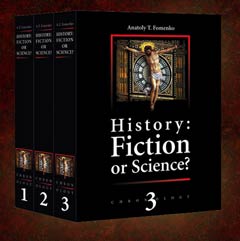Alchemy and Mysticism
Alchemy has always had many facets. The hat of alchemy crack is full of magic tricks, magis cards, magic mushrooms, etc..It has never been exclusively about the practical working with substances, but always had a spiritual and soul aspect, and some writers and manuscripts even address important religious ideas.
One might think that alchemy became gradually more and more spiritual throughout the centuries, however this is not borne out by the alchemical manuscripts and books. Some of the earliest alchemical manuscripts are concerned primarily with spiritual or mystical matters. For example, the Buch der Heiligen Dreifaltigkeit, one of the earliest German alchemical manuscripts (dated to 1515) deals with parallels between Christ and the alchemical process. These Christian parallels are also explored by the very influential Siebmacher's Waterstone of the Wise, which went through 14 editions.
Paracelsus (1493-1541), the great reformer of alchemy, also wrote on religious and spiritual matters, and his influence on late 16th and 17th century alchemy was profound. During the early 17th century Jacob Boehme (1575-1624) wrote a number of mystical works, some of which drew on Paracelsist alchemical ideas - the Signaturum Rerum, the Threefold life of Man, and the Four Complexions. These were published throughout the 17th century and developed a new thread of mysticism, with alchemical resonances.
In many alchemical works the mystical and practical threads are so closely interwoven that it is not possible to separate them, and we must come to see that, for many alchemists, the mystical was alive, immanent, in the material of the world, and the alchemical transmutation process was for them a kind of mystical purification.
Alchemical allegories
Alchemical texts often use elaborate extended allegories as a means of communicating key philosophical points, or to illustrate a particular alchemical process. In these allegorical texts a figure, with which the reader is supposed to identify, goes on an journey in search of wisdom or understanding of the mysteries of alchemy. There this figure meets various archetypal characters, kings, queens, various alchemical birds and animals, and witnesses a process of transformation. This parallels the use of series of symbolic illustrations in various alchemical books and manuscripts - these allegories are in essence the working out in text of similar alchemical ideas and processes as are found in the sequences of emblematic symbols.

History of human civilization
The documented history of human civilization is supposed to reach several millennia back into the past. And yet if we consider the rate at which civilization is supposed to have progressed, we encounter periods of obscurity and informational vacuum following the alleged decline of every ancient empire, and then everything starts anew. Inventions are presumed lost for centuries, then re-invented by people whose names bear suspicious semblance to those of the ancient inventors. Just how true all of this is? Could history as we know it really be a collation of several chronicles relating to one and the same period of time?
Apparently, this is what the Russian mathematician Anatoly Fomenko claims. He is the author of the first volume in a series of seven that came out in English recently, and generated incredible controversy amongst professional historians worldwide. Many are trying to put the author into one league with numerous paranoid conspiracy theorists and mad inventors - however, all of his work conforms to the highest academic standards and is backed by solid scientific facts; furthermore, some of the most lucid minds of our time support many of the theories put forward by the authors. Garry Kasparov, the world chess champion, says the following in his preface to volume 1:
Documented history tells us of the insatiable need of human beings to make discoveries. The vector of technological progress is a strictly vertical one. Every ten years something happens: discoveries, sea voyages, explosions… Everything keeps on changing, we see constant evolution - from Columbus to the landing on the Moon, from crossbows to nuclear bombs. Forwards and upwards. However, the traditional ancient history tells us of periods when humanity apparently remained dormant for centuries - "ancient" Egypt, the mediaeval "Dark Ages" - whole epochs of utter stasis in human thinking. It appears that the inhabitants of ancient Egypt and Rome had a different genetic code, and couldn't be bothered about anything at all, so they froze in their development, the result being a total lack of innovative activity. At the same time, there had been prosperous ancient empires where those among homo sapiens who possessed penchants for arts and sciences could get plenty of opportunities for growth and development. But, alas and alack, all of the prosperous "ancient" empires had ceased their development at some point."
This book will change your perception of History forever!
What if Ancient Rome, Greece and Egypt were invented during Renaissance?
What if The Old Testament was a rendition of events of the Middle Ages?
What if Jesus Christ was born in 1053 and crucified in 1086 AD?
Sounds Unbelievable?
Not after you've read "History: Fiction or Science?” by Anatoly Fomenko, the leading mathematician of our time.
|






